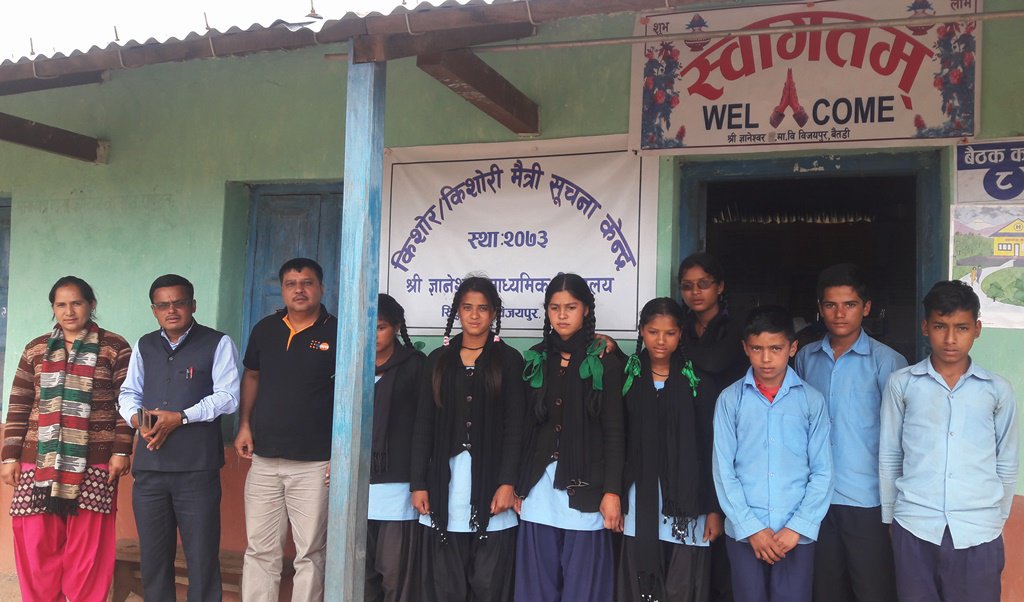Nepal empowers girls, women through Sexuality Education
The negative effect on girls’ further education opportunities from early marriages and absenteeism during menstruation were the main messages of the storytelling series.

- Country:
- Nepal
This increase in engagement from local people has been initiated by a series of community-based activities such as storytelling, street plays, radio programmes and art competitions, which were supported under the joint programme of UNESCO-UNFPA-UN Women funded by KOICA “Empowering Adolescent Girls and Young Women through the Provision of Comprehensive Sexuality Education and a Safe Learning Environment in Nepal”.
The negative effect on girls’ further education opportunities from early marriages and absenteeism during menstruation were the main messages of the storytelling series. This series was organized in eight schools and two other public places in different villages of the district in the first week of July. Over 1500 people watched the series and more than 700 participants were female, including as many as 500 adolescent girls. Around 80 people were directly involved in the storytelling with the storytellers encouraging members of the audience to participate in the event.
Purushottam Ghimire, Head Teacher of Bhagawati Secondary School reflected on the storytelling series. “The issues brought up in these stories are very sensitive and were made easier to understand through the interactive nature of the event by asking the opinions of the audience. Storytelling is a great way to give victims a voice and this series facilitated a great opportunity for the students to share their views in a creative and fun way. It was a very impactful activity”.
One of the main issues raised by audience members was the fact that many parents discriminate between their own children, by sending their sons to private schools and their daughters to public schools. Another issue discussed by the audience was that there should be intervention from a social worker or the authorities in cases of child marriage. Counseling and proper care were also suggested to minimize school dropout rates during menstruation. Locals noted that the events held in schools and communities had encouraged them to make collective efforts to ensure a safe learning environment for girls.
“The message that was delivered on speaking up against sexual violence towards girls by teachers in schools, and how girls and families should deal with such situations, is extremely important as this is a major problem in our locality,” Santosh Kumar Jha, Ward Secretary of Devangunj Municipality said after one of the events.
“I never thought that I would be able to talk about my own problems in front of this many people, but the storytelling activity made it so easy,” said Kiran Kumari Mehata, a grade eight student from Janata School in Madarsahi.
- READ MORE ON:
- UNESCO
- community-based activities
- UNESCO-UNFPA-UN
- KOICA
- storytelling










